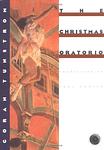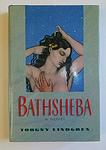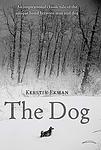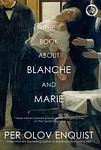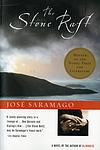The Greatest Portuguese, Swedish "Fiction" Books Since 1980
Click to learn how this list is calculated.
This list represents a comprehensive and trusted collection of the greatest books. Developed through a specialized algorithm, it brings together 300 'best of' book lists to form a definitive guide to the world's most acclaimed books. For those interested in how these books are chosen, additional details can be found on the rankings page.
Genres
Countries
Date Range
Reading Statistics
Click the button below to see how many of these books you've read!
Download
If you're interested in downloading this list as a CSV file for use in a spreadsheet application, you can easily do so by clicking the button below. Please note that to ensure a manageable file size and faster download, the CSV will include details for only the first 500 books.
Download-
1. The Book of Disquiet by Fernando Pessoa
"The Book of Disquiet" is a posthumously published collection of thoughts and musings of a solitary dreamer, who is a Lisbon-based bookkeeper. The book delves into the mind of a man who is discontented with his mundane life and finds solace in dreaming and writing. The narrative is a profound reflection on life, solitude, and the nature of humanity, filled with philosophical insights and poetic language. The protagonist's introspective journey and his struggles with existential despair make it a seminal work in the genre of literary modernism.
-
2. The Girl with the Dragon Tattoo by Stieg Larsson
A disgraced journalist is hired by a wealthy industrialist to solve a forty-year-old mystery involving the disappearance of his niece. He is assisted in his investigation by a brilliant but deeply troubled hacker. As they delve deeper into the mystery, they uncover a twisted web of family secrets, corruption, and murder. The story is a dark and gripping exploration of Swedish society, as well as a thrilling mystery.
-
3. The Year of the Death of Ricardo Reis by José Saramago
The novel is a metaphysical narrative about a doctor named Ricardo Reis who returns to Lisbon, Portugal after learning about the death of his friend. He finds himself in a society on the brink of dictatorship, and as he navigates through his daily life, he encounters his deceased friend's ghost and a hotel maid with whom he begins a love affair. The book explores themes of identity, love, and the nature of reality, set against the backdrop of political turmoil.
-
4. The Christmas Oratorio by Göran Tunström
"The Christmas Oratorio" is a poignant story set in a small Swedish town, revolving around a boy who loses his mother and his relationship with his silent, grieving father. The narrative is deeply embedded in music, specifically Bach's Christmas Oratorio, which becomes a source of solace for the boy. The tale is a rich tapestry of love, loss, and the healing power of music, exploring the deep emotional bonds between father and son, and the transformative power of art.
-
5. Faceless Killers by Henning Mankell
In this thrilling crime novel, an elderly farmer and his wife are brutally murdered and the only clue is the wife's dying word: "foreign." This sets off a series of events that involves a dedicated detective who must solve the crime while dealing with his own personal problems. The investigation becomes even more complex when the press catches wind of the dying word, sparking a wave of xenophobia in the community. The detective must navigate through the fear and prejudice to find the truth and bring the killers to justice.
-
6. Blindness by José Saramago
In this dystopian novel, an unexplained epidemic of "white blindness" sweeps through an unnamed city, causing chaos and panic. The government responds by quarantining the afflicted in an abandoned mental hospital, where conditions quickly deteriorate into violence and squalor. Amid the despair, one woman mysteriously retains her sight and guides a small band of the blind, including her husband, through the harrowing ordeal. The novel explores themes of loss, human nature, and the fragility of civilization.
-
7. Baltasar and Blimunda by José Saramago
"Baltasar and Blimunda" is a historical love story set in 18th century Portugal. The narrative follows a maimed soldier, Baltasar, and a young clairvoyant woman, Blimunda, as they navigate the hardships of life during the Inquisition. Their love story is intertwined with the construction of the Convent of Mafra, a grandiose project initiated by the King. The novel explores themes of love, faith, human resilience, and the struggle against political and religious oppression.
-
8. Simon and the Oaks by Marianne Fredriksson
"Simon and the Oaks" is a poignant tale set against the backdrop of World War II, depicting the life of a young Swedish boy, Simon, who comes from a working-class family but dreams of a world beyond his own. His life changes when he befriends Isak, a boy from a wealthy Jewish family fleeing from Nazi Germany. The book explores their friendship, the stark contrast between their worlds, their shared love for literature and music, and the impact of war on their lives. It also delves into themes of identity, love, loss, and the enduring power of human spirit.
-
9. Ronia, The Robber's Daughter by Astrid Lindgren
In a secluded forest, Ronia, the daughter of a feared robber chieftain, grows up surrounded by nature and the wild creatures that inhabit it. Despite her father's wishes for her to be tough and ruthless like him, Ronia's gentle heart and love for the forest lead her to form an unlikely friendship with Birk, the son of a rival robber chief. Together, they navigate the challenges of their feuding families, discovering the power of friendship, loyalty, and the importance of following their own paths.
-
10. The Gospel According To Jesus Christ by José Saramago
This novel offers a provocative and humanized retelling of the life of Jesus Christ, diverging from traditional biblical narratives. It presents a Jesus who is all too human, grappling with the complexities of life, love, and a sense of destiny. Through a blend of biblical lore and imaginative fiction, the story explores themes of divinity, free will, and morality, challenging readers to reconsider the foundations of faith and the nature of storytelling itself. The narrative delves into Jesus's relationships, his encounters with figures such as God and the Devil, and ultimately portrays a deeply philosophical and introspective version of a figure central to Western civilization.
-
11. Fado Alexandrino by António Lobo Antunes
"Fado Alexandrino" is a complex narrative that follows the lives of four Portuguese men who meet at a dinner in Lisbon to commemorate their return from the colonial war in Mozambique ten years prior. Each man, representing different social classes, recounts his life before, during, and after the war, revealing their personal struggles and the impact of the war on their lives. The novel also reflects the political and social changes in Portugal from the dictatorship era to the revolution and its aftermath.
-
12. Samuels bok by Sven Delblanc
"Samuels bok" is a historical novel set in 18th century Sweden, focusing on the life of Samuel, a Jewish man who immigrates to Sweden to escape persecution in his home country. The book explores his journey and struggles as he navigates through a society filled with prejudice and discrimination, while also trying to maintain his faith and cultural identity. The story is a vivid portrayal of the harsh realities faced by immigrants and minorities, providing a powerful commentary on social and religious intolerance.
-
13. Sidetracked by Henning Mankell
In this gripping Scandinavian crime novel, a renowned detective finds himself embroiled in a complex investigation when a brutal murder occurs just before a high-profile conference on African issues. As he delves into the case, he uncovers a web of deceit and corruption that extends beyond the borders of Sweden. Simultaneously, he must grapple with personal distractions and the challenge of keeping his own life from derailing. The detective's pursuit of justice leads him down a path where the distinction between right and wrong becomes increasingly blurred, and the stakes are as much personal as they are professional.
-
14. After the Flood by P. C. Jersild
After a global catastrophe causes the world to be submerged under water, a small group of survivors aboard a submarine must navigate the challenges of their new reality. As they grapple with limited resources, the threat of disease, and the psychological toll of their situation, they also must confront the question of what it means to be human and how to rebuild civilization in a drastically altered environment. The narrative explores themes of survival, morality, and the resilience of the human spirit in the face of adversity.
-
15. Bathsheba by Torgny Lindgren
"Bathsheba" is a dark and humorous tale set in a remote Swedish village plagued by a mysterious illness. The narrative follows the village's school teacher who, despite being the only one unaffected by the disease, is ostracized by the community. The arrival of a beautiful and enigmatic woman named Bathsheba stirs up the village, particularly the teacher who becomes infatuated with her. The novel explores themes of love, lust, faith, and the human condition, encapsulated in a captivating and surreal narrative.
-
16. Dog by Kerstin Ekman
"Dog" is a heartwarming tale of a puppy who is abandoned by his family and left to fend for himself in the wilderness. The narrative follows the puppy as he learns to survive in the wild, encountering various animals and overcoming numerous challenges along the way. The story is a poignant exploration of survival, resilience, and the enduring spirit of animals, as well as a critique of human cruelty towards animals.
-
17. The History of the Siege of Lisbon by José Saramago
This narrative revolves around a proofreader named Raimundo Silva, who, while working on a historical text about the Siege of Lisbon, decides to alter history by adding a single word to the text, turning the factual account into a fictional one. This act of rebellion leads him into a relationship with his boss, Maria Sara, and together they explore the consequences of questioning historical facts and narratives. The story also delves into the power of language and storytelling, and the blurred lines between history and fiction.
-
18. The Return Of The Caravels by António Lobo Antunes
In this novel, the ghosts of Portugal's colonial past return to haunt the present, as the caravels from the age of exploration sail back into the Tagus River, bringing with them the historical figures from the 15th and 16th centuries. The narrative weaves together the lives of these returned explorers with those of contemporary Lisbon's denizens, blurring the lines between past and present. Through a series of interconnected stories, the book explores themes of identity, nostalgia, and the complex legacy of colonialism, as characters grapple with the dissolution of the Portuguese empire and the reintegration of its former colonies, reflecting on the impact of history on individual lives and national consciousness.
-
19. Treaty Of The Soul's Passions by António Lobo Antunes
"Treaty of the Soul's Passions" is a profound exploration of human emotions and the complexities of the inner self. Through a series of interconnected stories and reflections, the narrative delves into the depths of love, despair, joy, and suffering, painting a vivid picture of the human condition. The author masterfully weaves a tapestry of characters and experiences, each revealing different facets of the soul's journey through life. With poetic language and rich psychological insight, the book invites readers to confront their own passions and question the nature of existence itself.
-
20. Karingana Ua Karingana by José Craveirinha
"Karingana Ua Karingana" is a collection of poetry that delves into the rich cultural heritage and history of Mozambique. Through vivid and evocative imagery, the author explores themes of love, loss, and the struggles faced by the people of his country. Craveirinha's powerful and poignant verses offer a glimpse into the complexities of Mozambican society, while also celebrating its resilience and beauty.
-
21. The Book about Blanche and Marie by Per Olov Enquist
The novel explores the relationship between two remarkable women: Blanche Wittman, a patient at the Salpêtrière hospital in Paris who became a renowned medium, and Marie Curie, a physicist and chemist who conducted pioneering research on radioactivity. The book delves into their friendship, their scientific collaborations, and the profound impact they had on each other's lives. It also explores the broader themes of scientific discovery, the nature of genius, and the role of women in a male-dominated society.
-
22. The Stone Raft by José Saramago
In this surreal exploration, the Iberian Peninsula breaks off from the rest of Europe and begins to drift across the Atlantic Ocean. As the governments and international community scramble to understand and respond to the phenomenon, five disparate individuals find themselves drawn together on a journey across the newly isolated landscape. Through their experiences and interactions, the narrative explores themes of identity, nationality, and the arbitrary nature of borders.
-
23. The Fifth Woman by Henning Mankell
In this gripping Scandinavian crime novel, a seasoned Swedish detective is drawn into a complex investigation when a series of brutal murders rocks his quiet community. The detective and his team are plunged into a dark world of revenge and sinister motives as they uncover the connection between the victims and a past they cannot escape. The detective's methodical approach and deep introspection lead him down a path where the killer's identity is as surprising as the motive, revealing the chilling depths of human malice and the lengths to which one will go to settle scores. As the body count rises, the detective must race against time to prevent further bloodshed and bring the perpetrator to justice.
-
24. Terra Sonâmbula by Mia Couto
"Terra Sonâmbula" by Mia Couto is a captivating novel set in war-torn Mozambique, where two individuals, a young boy and an old man, cross paths and embark on a journey that intertwines their lives. Through their encounters with other characters and their shared experiences, the book explores themes of loss, displacement, and the power of storytelling to heal and provide hope in the face of adversity. The lyrical prose and magical realism elements create a rich and evocative narrative that immerses readers in the complex and haunting world of post-colonial Mozambique.
-
25. The Girl Who Played With Fire by Stieg Larsson
In this gripping thriller, a young woman with a troubled past and exceptional hacking skills becomes the prime suspect in a double homicide after her fingerprints are found on the murder weapon. As she goes on the run to clear her name, she must also confront figures from her dark history and unravel a deeper conspiracy linked to the sex trade. Meanwhile, her friend, an investigative journalist, works to uncover the truth and prove her innocence, leading to a dangerous confrontation with powerful enemies who will stop at nothing to protect their secrets.
Reading Statistics
Click the button below to see how many of these books you've read!
Download
If you're interested in downloading this list as a CSV file for use in a spreadsheet application, you can easily do so by clicking the button below. Please note that to ensure a manageable file size and faster download, the CSV will include details for only the first 500 books.
Download


